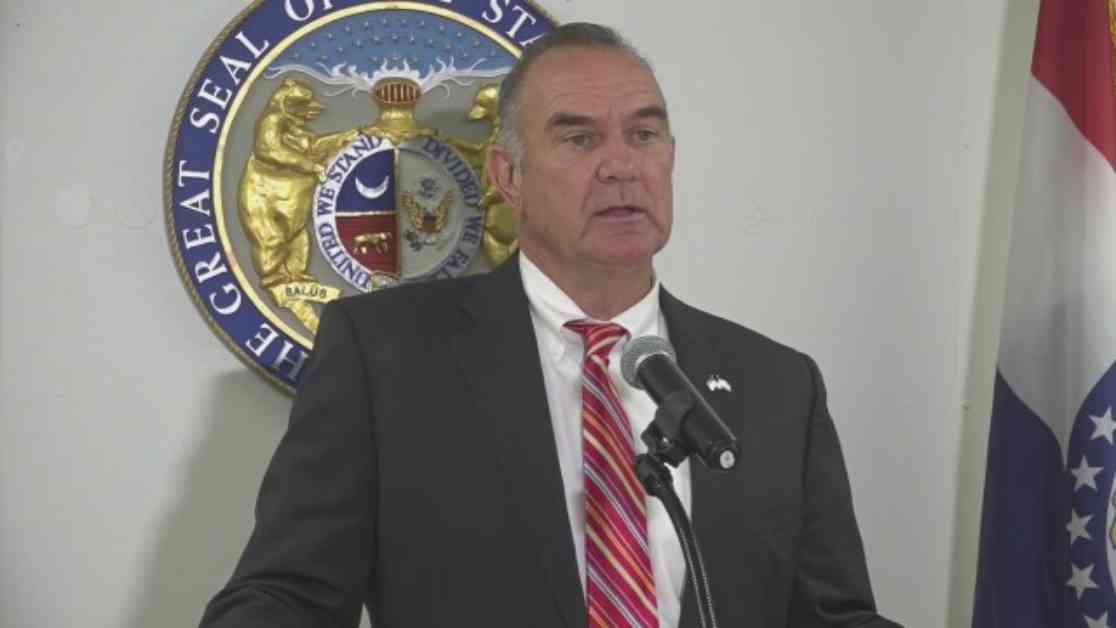Missouri’s Governor-Elect Kehoe has highlighted crime as a top priority and proposed putting the St. Louis Metropolitan Police Department under state control. This move has sparked debate among lawmakers, with some expressing concerns about the potential impact on local control and crime rates.
Representative Emily Weber from Kansas City emphasized the importance of local control over the police department, echoing sentiments from her constituents who prefer a locally controlled force. She emphasized the need for collaboration between St. Louis and Kansas City to prevent the state takeover from becoming a reality.
Governor-Elect Kehoe defended his proposal by arguing that state control would enhance safety on the streets and improve officer recruitment and retention. He cited the need for a safe environment to attract businesses and promote urban redevelopment. Despite these arguments, St. Louis Mayor Tishaura Jones and Chief of SLMPD, Robert J. Tracy, have voiced their support for local control, emphasizing the progress made in reducing crime under their leadership.
The debate over police department control is not new in Missouri, with historical shifts in governance structure dating back to 2012. While some advocate for state oversight, others point to the success of locally controlled departments in addressing community needs and reducing crime rates.
The comparison with the Kansas City Police Department, which is state-controlled, raises questions about the effectiveness of this model in improving public safety. Mayor Quinton Lucas of Kansas City highlighted concerns about accountability and staffing issues in state-controlled departments, emphasizing the need for collaborative solutions to address crime and recruitment challenges.
As the discussion on police department governance continues, it remains to be seen how Governor-Elect Kehoe’s proposal will impact law enforcement strategies and community relations in Missouri. The ongoing dialogue between state and local officials underscores the complex nature of policing and the diverse perspectives on the best approach to ensuring public safety.
